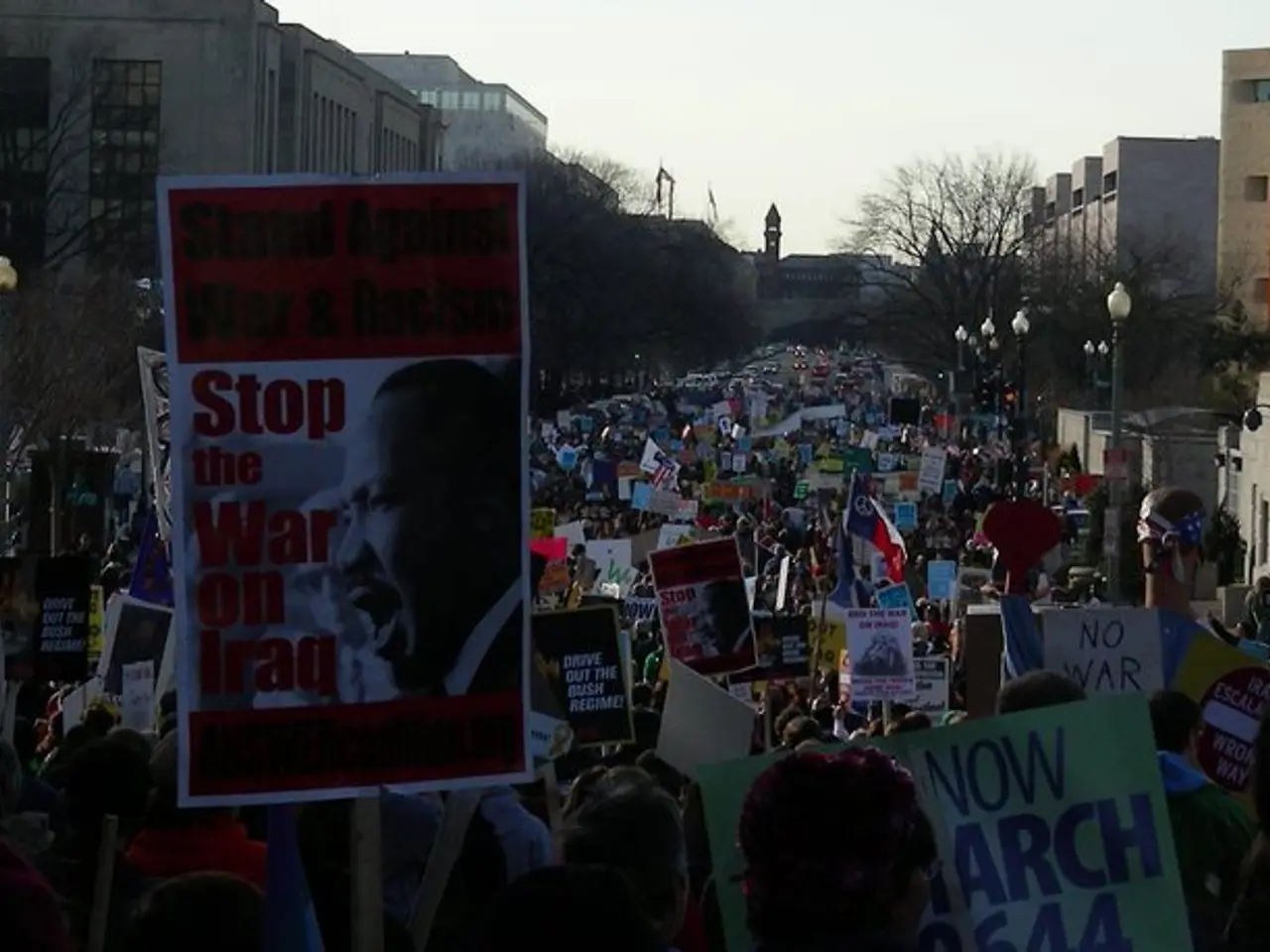Students in Serbia plan a significant demonstration following their 'demand' or 'call to action'.
In a historic turn of events, student-led mass demonstrations rocked the heart of Belgrade on June 28, with an estimated 140,000 people participating, primarily calling for early elections and an end to President Aleksandar Vučić's long rule[1][2].
The protests, a turning point in Serbian politics, were initiated by high school seniors who find it unacceptable to be used as pawns in the standoff between the government and academia[1]. The students' key demands are for new elections, an end to government corruption, and freedom and fair treatment for all citizens.
The main call was for the Serbian government to hold early, free, and fair elections to replace the current administration perceived as entrenched and corrupt. The protests focused heavily on combating widespread corruption under the existing regime and ending police brutality and wrongful arrests of demonstrators[1].
The protests saw clashes with police, resulting in dozens of arrests (77 people detained as of June 29, with 38 still in custody). Authorities justified the arrests based on alleged violent acts against police during the demonstrations[1]. Thousands gathered on June 29 to protest the arrests and police treatment of young demonstrators, asserting their right to live in a free country as demanded by the students[1].
The demonstrations have highlighted deep political dissatisfaction among youth and broader society, but the immediate outcome depends on whether the authorities heed the calls for political reform or maintain a hardline stance[1][2]. The government response has so far been focused on law enforcement actions, with President Vučić indicating many more arrests could follow[1][2].
The protests put significant pressure on the Serbian government for political change, particularly the demand for early elections. Cultural institutions that have supported students have lost government funding, and the government has revoked tax incentives for the IT sector, a key supporter of the protests and a source of support for unpaid teachers[1].
The upcoming protest in Belgrade is scheduled for Saturday. The students' demands are for the Serbian government to announce by 9 p.m. on June 28 that the president will dissolve parliament[1]. High school seniors face uncertainty as the government has yet to authorize universities to enroll new students[1].
Professor Jelena Kleut, a professor at the Faculty of Philosophy at the University of Novi Sad, feels that only an overwhelming push would result in a breakthrough, and she is unsure if the public's sense of urgency has faded[1]. The protests come after eight months of protests, demanding political and criminal accountability for a railway station canopy collapse that killed 16 people[1].
The day chosen for the protest, June 28, is significant in Serbian history and mythology, often coinciding with decisive events and historical turning points[1]. Gojko Bozovic, founder and editor-in-chief of the publishing house Arhipelag, states that the regime has a problem with parts of society where entire communities stand against it[1].
The government has fired three teachers from Svetozar Miletic High School in Srbobran for suspending classes in solidarity with students[1]. Slavica Filipovic, one of the fired teachers, has helped 24 years of students to graduate from high school[1].
In summary, the June 28 student protests in Serbia are a major expression of popular demand for democratic renewal, transparency, and respect for civil liberties, with the key tangible demand being the call for early elections to end Serbian President Vučić’s prolonged rule[1][2]. The protests continue daily, with protesters honoring victims of past tragedies at 11:52 a.m., and the upcoming protest in Belgrade is scheduled for Saturday.
- The student-led protests in Serbia, a significant event in society, are primarily demanding early elections, an end to government corruption, and liberty for all citizens, as well as focusing on combating corruption and ending police brutality.
- The Serbian government's response to the protests has primarily been law enforcement actions, with many arrests made, justifications given for these arrests, and potential for more to follow.
- The protests have led to a significant impact on political reform, with cultural institutions losing government funding and the IT sector facing revoked tax incentives for supporting the protests.
- The demonstrations are also supported by online education resources, self-development materials, and news outlets, acting as tools for learning about the issues and staying informed.
- As the demand for early elections continues, there is uncertainty surrounding academia, as the government has yet to authorize universities to enroll new students, affecting high school seniors.
- The ongoing protests have shed light on the deep political dissatisfaction within the youth and broader society, bringing attention to historical and mythical events that have coincided with decisive turning points, indicating a call for change in Serbian war-and-conflicts and crime-and-justice background.








